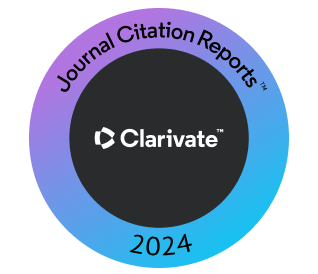
ETHICS POLICY
HUMAN AND ANIMAL ETHICS POLICY
ARO Journal is dedicated to upholding the highest ethical standards in research. This commitment is essential for ensuring the integrity and reliability of scholarly work involving both human and animal subjects.
Human Ethics in ARO Journal
ARO Journal mandates strict adherence to ethical guidelines in research involving human participants. Key principles include:
Informed Consent
Participants must be fully informed about the nature, purpose, risks, and potential benefits of the study before agreeing to participate. This ensures voluntary and informed participation.
Privacy and Confidentiality
Researchers must protect personal information and maintain the confidentiality of data collected from participants.
Vulnerable Populations
Special considerations and protections are required for research involving children, the elderly, individuals with disabilities, and other vulnerable groups to ensure their safety and ethical treatment.
Data Integrity
Researchers must ensure accurate and honest reporting of research findings. Fabrication, falsification, and plagiarism are strictly prohibited.
Conflict of Interest
All potential conflicts of interest must be disclosed to maintain transparency and integrity in the research process.
Ethical Review
Research involving human subjects must receive approval from Institutional Review Boards (IRBs) or equivalent ethics committees before the study begins. This review ensures that the research complies with ethical standards and regulations.
Animal Ethics in ARO Journal
ARO Journal is committed to promoting ethical research involving animals. For studies involving regulated animals (including all live vertebrates and higher invertebrates), the following guidelines apply:
Ethical Approval
Researchers must obtain approval from relevant bodies, such as Institutional Review Boards or Ethics Committees, in accordance with international or local laws and regulations before conducting animal research. Authors must provide an ethics statement in their manuscript’s Methods section, detailing the approval process, including the granting organization and approval reference numbers. If an approval reference number is unavailable, written approval must be provided as confidential supplemental information.
Research on Non-Human Primates
Research involving non-human primates must adhere to specific guidelines outlined in the Weatherall (2006) report, "The Use of Non-Human Primates in Research."
Research on Non-Regulated Animals
For research on non-regulated animals, authors must provide a statement explaining why ethical approval was not required.
Handling of Experimental Animals
All experimental animals must be handled in accordance with the highest standards mandated by the author’s institution. Researchers are encouraged to follow the "Animal Research: Reporting In Vivo Experiments" (ARRIVE) guidelines developed by the National Centre for the Replacement, Refinement, and Reduction of Animals in Research (NC3Rs). These guidelines ensure transparency and thorough reporting of animal research.
Detailed Reporting
Manuscripts should include specific and detailed descriptions of the organisms used in the study, including strain names when known, to ensure clarity and accuracy in reporting.
By adhering to these guidelines, ARO Journal aims to advance scientific knowledge while upholding the ethical treatment and welfare of human and animal subjects.
Note
Authors are responsible for consulting and complying with the specific animal research regulations and guidelines applicable in their respective countries and institutions.
By maintaining these ethical standards, ARO Journal strives to contribute to the advancement of knowledge in a responsible and ethical manner, ensuring the well-being of human and animal subjects involved in research.










 ARO Journal is a scientific, peer-reviewed, periodical, and diamond OAJ that has no APC or ASC.
ARO Journal is a scientific, peer-reviewed, periodical, and diamond OAJ that has no APC or ASC.